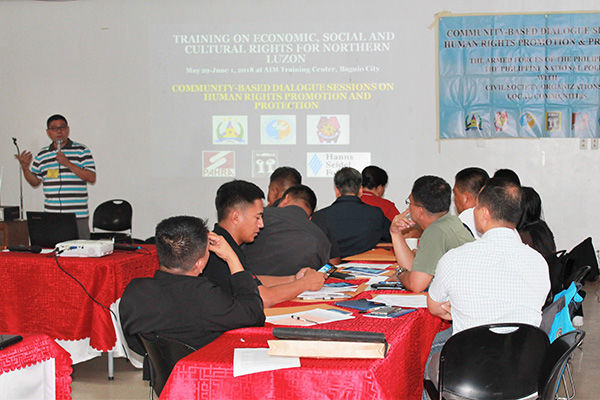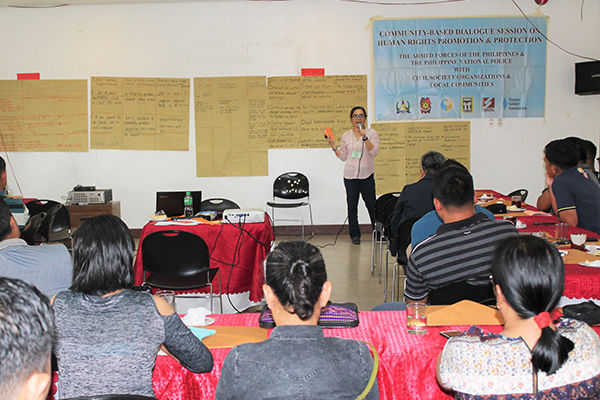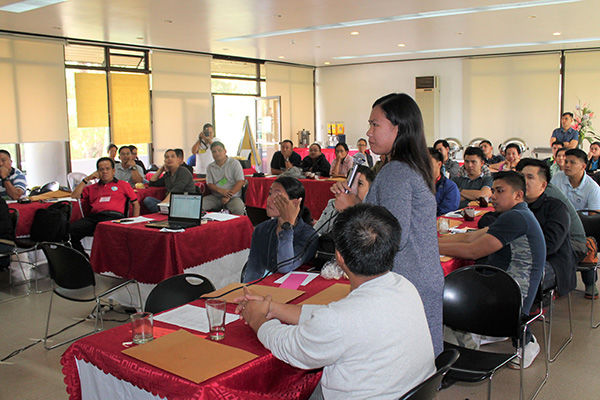Community-based Dialogues (CBD) Project
CBD holds pilot training on Economic, Social and Cultural Rights

HSF
The 3-day training was participated in by more than sixty (60) participants representing the Armed Forces of the Philippines (AFP Human Rights Office and counterparts from the major service commands, Philippine Army’s 5ID and 7ID including Civil-Military Operations, officers from the Philippine Navy and Philippine Air Force, and education and training commands), the Philippine National Police (training managers and assistant training managers from the Regional Specialized Training Units covering all 8 regions in Luzon), the Commission on Human Rights and civil society organizations coming from Cordillera Administrative Region, Region 1 (Ilocos Region) and Region 2 (Cagayan Valley). The participation of more local stakeholders like NEDA and DILG from CAR has positively contributed to the discussions. Also present were members of the Project Steering Committee (PSC) as part of the training team and secretariat.

HSF
The ESCR training program was developed following strong recommendations from the regional-level dialogues to also run a multi-sectoral training program on ESCR noting that a number of civil and political rights issues and concerns emanate from ESCR-related conflicts. The PSC assessed the various human rights problems raised at the regional dialogues and identified four (4) dominant themes, namely, indigenous people’s rights, agrarian reform or land issues, mining and labor.
For the Northern Luzon training, three thematic issues were discussed – Indigenous Peoples (IPs), agrarian reform and mining.

HSF
The conduct of the pilot training was well received and appreciated by the participants, both in terms of content and methodology. They acknowledged that the inputs were comprehensive and the group activities facilitated a better understanding of the application of policies, laws and regulations, as well as closer interaction and cooperation between and among the participants from the security sector, and civil society. Underscoring the value of dialogues, it gave them the opportunity to share ideas and insights with open minds, and to establish trust and rapport with one another.
With the project now on its fourth phase, institutionalization-localization planning workshops form part of the dialogue sessions to institutionalize the CBD mechanism at both the institutional level by integrating it within the Programs of Instruction, Pre-Military Education or career courses and/or community support programs of the partner organizations; and at the local level by strengthening the regional core groups/networks.
The CBD is a partnership among the Alternative Law Groups, Armed Forces of the Philippines, Philippine National Police, Commission on Human Rights, and Philippine Alliance of Human Rights Advocates with support from the Hanns Seidel Foundation/Germany (HSF).
